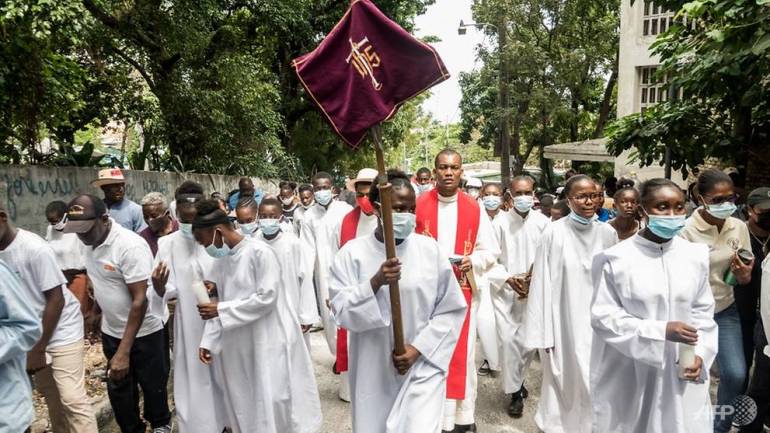Bishops plead to stop Haiti from descending into hell

The Catholic Bishops’ Conference of Haiti has appealed to politicians, state actors, and armed gangs to prevent the country from stopping Haiti's 'descent into hell.’
The bishops called on armed gangs to lay down their arms because the exhausted Haitian people "really cannot do it anymore."
On February 18, UN sources reported that in Haiti, gang violence “continues to plunge major urban centres into lawlessness and grief.”
Although the Haitian National Police has tried to stem the wave of violent crime, the “overstretched, understaffed, and under-resourced police force, cannot on its own curtail the alarming rise in gang-generated insecurity,” Helen La Lime, who heads the UN Integrated Office in Haiti, told the UN Security Council.
“Criminal armed groups have a stronghold on the economic and social lives of millions…Their indiscriminate use of abduction, murder, as well as sexual and gender-based violence, as a means to terrorize local populations in the fight to extend their territorial control is particularly abhorrent”, she explained.
“Our dear Haiti is crossing a difficult stage in its history,” wrote the bishops. “Who is going to finally stop her descent into hell? The Haitian people really cannot do it anymore. They are tired, worn out, exhausted.”
About 55 percent of Haitians are Catholics.
According to the Catholic charity 'Aid to the Church in Need' (ACN), the bishops wrote, "The moment in which we are living is extremely serious and particularly decisive at this irreversible turning point of our history. What is at stake is our present and our future, and therefore our existence itself as a people, as a nation, as a state. We must make courageous and effective decisions.”
The bishops' appeal was made public before February 7. This was the day Haiti President Jovenel Moïse’s term in office would end. But the President had been assassinated during the night of July 6-7, 2021.
The country has since been run by Ariel Henry, the president’s choice for prime minister. Henry has promised to create a provisional electoral council soon to pave the way for elections in Haiti, which he says will take place by the end of this year as his administration tries to improve security conditions.
Numerous opponents have challenged Henry and nominated their leaders, which the prime minister has not recognized.
The bishops warned that is no time “for division, disunity, disagreement, discord and fratricidal struggles for power, for the unchecked and shameless pursuit of personal, egoistic and petty interests.”
Instead, the bishops called for unity and addressed an appeal to all the protagonists on the political scene, “that they come to the widest possible consensus to enable a definitive exit from the crisis.”
Looking ahead at the possible increase in instability after February 7, they called on all Haitians to “work together and to move ahead in a spirit of "dialogue, of consensus and of a historic compromise aimed at unifying our people, and of saving and transforming our country, which finds itself at the edge of an abyss.”
They addressed themselves specifically to leaders, asking that they “do everything to re-establish order, peace, security and respect for life.”As to the armed groups and kidnappers who “with complete impunity are sowing violence, fear, death, mourning, desolation and distress,” the bishops asked that they “lay down their arms, renounce violence and kidnapping, and stop shedding the blood of their sisters and brothers.”
Over recent months, violence has increased dramatically in the country, with drug-related crime and abductions.
“The gang phenomenon cannot be addressed through policing alone,” Ms. La Lime explained, elaborating on the need for a law-enforcement approach that incorporates greater control of illegal weapons and is complemented by socio-economic projects and reintegration activities “aimed at generating employment and revenue in the neighbourhoods most affected by the scourge of gang violence.”
Against this backdrop, the UN and Haitian Government have jointly resolved to strengthen international support, epitomized by the imminent creation of a multi-donor basket fund.
Radio Veritas Asia (RVA), a media platform of the Catholic Church, aims to share Christ. RVA started in 1969 as a continental Catholic radio station to serve Asian countries in their respective local language, thus earning the tag “the Voice of Asian Christianity.” Responding to the emerging context, RVA embraced media platforms to connect with the global Asian audience via its 21 language websites and various social media platforms.














